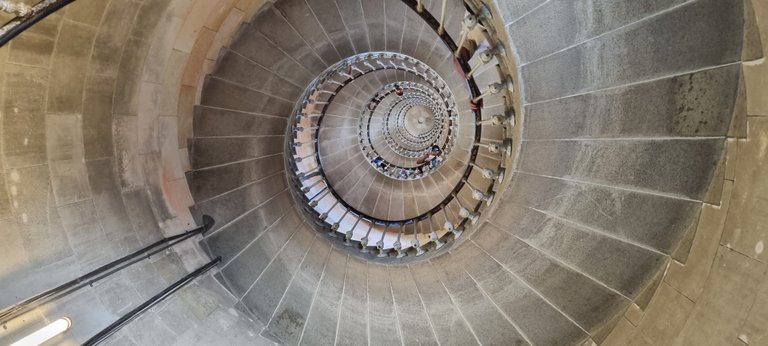

Lao Tse

Buenas noches, estimados lectores y productores de conocimiento.
Es un placer para mí estar de vuelta una vez más en esta comunidad, la cual me alegra ver ha ido creciendo todavía más.
Seguramente, se preguntarán qué he estado haciendo. Más que nada, pensar y observar. Parecería que es un enfoque pasivo, pero todo lo contrario. A veces saber observar es saber sanar, lo que nos lleva a la reflexión que @minismallholding compartió con nosotros, porque creo que vale la pena explorar por qué perdonar puede ser tan difícil.
A todos nos ha pasado que conocemos personas a las que no parece afectarles nada. Como si les resbalara los infortunios de la vida y encima, se lo toman con humor o reflexión. Del otro lado tenemos a las personas que cada obstáculo en el camino parece causarles heridas fatales que despiertan profundo rencor y resentimiento. Desde luego, mi intención no es simplemente señalar quien es mejor o peor, porque eso sería ya bastante simple, sino entender por qué perdonar es un obstáculo para unos y no para otros.


Un habito
A lo largo de mi vida he conocido realmente, es verdad, a pocas personas. Pero las pocas que he conocido las he observado detenidamente. Desde luego, las personas que más llegamos a conocer a lo largo de nuestra vida es nuestra familia y su pasado.
Mi abuela era una persona profundamente rencorosa. A todas las cosas buenas le encontraba una falla y era bastante buena en ello. Dicen que lo que no se practica se olvida, pero tambien que la practica hace al maestro. Desgraciadamente, cuando era pequeña, alguien embaucó a su familia y de repente, habían perdido buena parte de sus activos. Cuando estás en una buena parte de tu vida en una posición cómoda y por culpa de alguien das una vuelta de 180 grados, es para volver loco a cualquiera. Como resultado, se volvió una persona severa y emocionalmente distante.
Creo que vale la pena pensar en como las heridas que recibimos de pequeños nos pueden acompañar el resto de nuestras vidas, porque la verdad es que la mayor parte del tiempo podríamos estar pensando a través de ellas las cosas que nos ocurren y es allí cuando la desesperación, el miedo y el odio pueden hacer nido en nuestras vidas.
Hoy, mi abuela está descansando en un lugar mejor. Pocos le teníamos estima porque mucha gente le tenía miedo, de que les dijera algo hiriente de repente. Pero los que la conocimos sabíamos que nos amaba, aunque todo ese dolor a veces pareciera sofocar sus buenas intenciones.
Hoy día vivimos en un momento privilegiado donde existen espacios para hablar y reflexionar sobre estas cosas, sobre como sanar e incluso identificar conductas que en otro tiempo eran normalizadas pero que realmente, fueron producto de mucho dolor. Me pesa, que las demás personas no hayan podido conocer la bondad interior de mi abuela, o la lealtad fiera con la que estaba dispuesta a defendernos. Recuerdo claramente que un día me dijo, con aflicción, que no entendia por qué de repente le daba por decir cosas hirientes. Eso me marcó.


Todo tiene un precio
Decía Lao Tse, en el momento en que entiendes que lo que le haces a otro, es algo que te haces a ti mismo, has comprendido una gran verdad.
Es verdad que construir muros altos evita que las personas tengan la oportunidad de lastimarte. Si evitas ser vulnerable o expresar tus sentimientos, nadie podrá usarlos en tu contra. Si eres hiriente, a nadie se le ocurrirá acercarse a hacerte daño. Pero esos muros están hechos con odio y miedo. Se van haciendo más grandes y fuertes conforme pasa el tiempo, porque necesitan el mantenimiento de la ira y la desconfianza. Llega un día en que no podrás distinguir entre amigos y enemigos porque tus propios muros no te dejarán ver, ni amar, ni ser amado. Simplemente, para los que siempre están buscando problemas, viven constantemente en ellos.
Para quien no perdona, seguramente tiene sus razones. No perdonar nos ayuda a mantenerlos alejados de personas que podrían hacernos daño. ¿Pero no es así que siempre tememos que nos hagan lo mismo en el futuro? Vemos a nuestro abusador en todas las caras.
Pienso, que por útil que pueda llegar a ser, es fácil que se pueda salir de control. Podemos alejarnos igualmente de una persona sin necesidad de guardar rencor cuando reconocemos que es alguien que se interpondrá en el camino de lograr nuestros objetivos o de proteger lo que más amamos.
¿Qué piensas tú?
¡Un fuerte abrazo!





Lao Tse

Good evening, dear readers and producers of knowledge.
It is a pleasure for me to be back once again in this community, which I am glad to see has been growing even more.
Surely, you will wonder what I have been doing. More than anything, thinking and observing. It would seem that it is a passive approach, but quite the opposite. Sometimes knowing how to observe is knowing how to heal, which leads us to the reflection that @minismallholding shared with us, because I think it is worth exploring why forgiveness can be so difficult.
It has happened to all of us that we know people who do not seem to be affected by anything. As if the misfortunes of life slip away from them and on top of that, they take it with humor or reflection. On the other hand, we have people who seem to have fatal wounds every time they encounter an obstacle that awakens deep resentment and bitterness. Of course, my intention is not simply to point out who is better or worse, because that would be quite simple, but to understand why forgiveness is an obstacle for some and not for others.


A habit
Throughout my life I have really known, it is true, few people. But the few I have known I have observed carefully. Of course, the people we get to know the most throughout our lives are our family and their past.
My grandmother was a deeply resentful person. She found a flaw in all things and she was quite good at it. They say that what is not practiced is forgotten, but also that practice makes perfect. Unfortunately, when she was little, someone tricked her family and suddenly, they had lost a good part of their assets. When you are in a good part of your life in a comfortable position and because of someone you make a 180 degree turn, it is enough to drive anyone crazy. As a result, she became a severe and emotionally distant person.
I think it is worth thinking about how the wounds we receive as children can accompany us for the rest of our lives, because the truth is that most of the time we could be thinking through them the things that happen to us and that is when desperation, fear and hatred can nest in our lives.
Today, my grandmother is resting in a better place. Few of us had any esteem for her because many people were afraid of her, that she would suddenly say something hurtful to them. But those of us who knew her knew that she loved us, even though all that pain sometimes seemed to suffocate her good intentions.
Today we live in a privileged time where there are spaces to talk and reflect on these things, on how to heal and even identify behaviors that were once normalized but were actually the product of much pain. It pains me that other people have not been able to know my grandmother's inner goodness, or the fierce loyalty with which she was willing to defend us. I clearly remember that one day she told me, with anguish, that she did not understand why she suddenly began to say hurtful things. That left a mark on me.


Everything has a price
Lao Tse said, the moment you understand that what you do to another is something you do to yourself, you have understood a great truth.
It is true that building high walls prevents people from having the opportunity to hurt you. If you avoid being vulnerable or expressing your feelings, no one will be able to use them against you. If you are hurtful, no one will think of coming close to hurting you. But those walls are made of hate and fear. They grow bigger and stronger as time goes by, because they need the maintenance of anger and distrust. There comes a day when you will not be able to distinguish between friends and enemies because your own walls will not let you see, love, or be loved. Simply, for those who are always looking for trouble, they live constantly in it.
For those who do not forgive, they surely have their reasons. Not forgiving helps us keep away from people who could hurt us. But don't we always fear that someone might do the same to us in the future? We see our abuser in everyone's face.
I think that, as useful as it may be, it can easily get out of hand. We can also distance ourselves from a person without holding a grudge when we recognize that they are someone who will get in the way of us achieving our goals or protecting what we love most.
What do you think?
A big hug!



Bienvenido de vuelta!!! 🤗 Tal vez el post de @rosahidalgo te de otra inspiración para escribir...
¡Muchas gracias! Me alegro de estar aquí. No poder escribir sobre el contenido de mi mente estaba comenzando a volverme loco para ser honesto. Haha. Pasaré por allí, gracias.
Thank you for sharing this story about your grandmother. I wish she could have conquered her demons and allowed others to come to know that kind side of her better. It is so true that we have only recently become more aware of how our bad experiences can affect us and have become better at talking about this.
Indeed. And just in time for a global mental health epidemic. Still, I fear the subject hasnt take weight in today's politics. I wish it had. Once you have studied a little bit on the subject and yourself you start noticing how common it is to be anxious nowadays. Also a lot of burnout going on. If people don't take this more seriously, it will also reach the powers spheres but, I believe it already had. When fear takes hold of the mind it makes really easy to do terrible things.